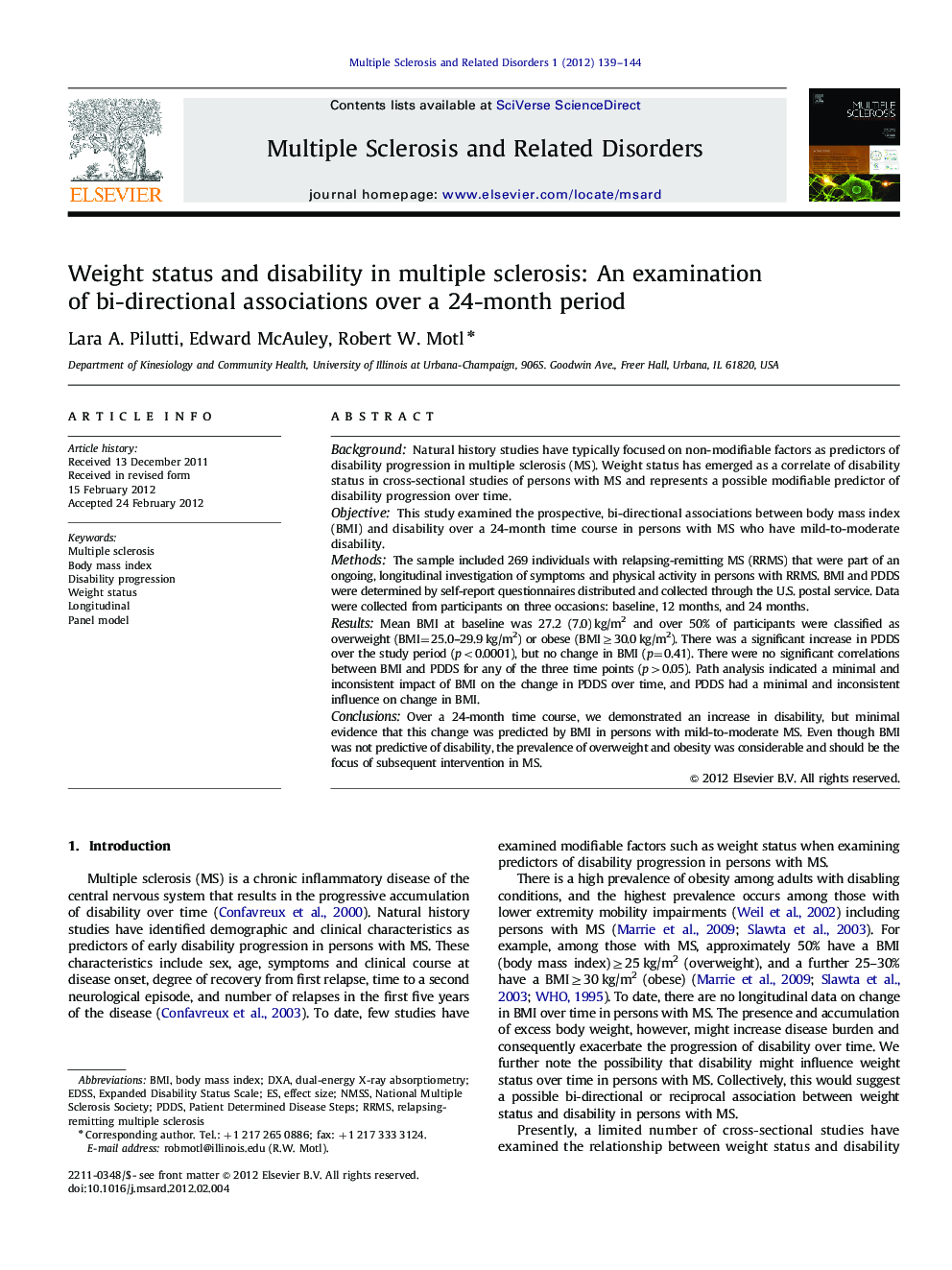| کد مقاله | کد نشریه | سال انتشار | مقاله انگلیسی | نسخه تمام متن |
|---|---|---|---|---|
| 2823943 | 1161453 | 2012 | 6 صفحه PDF | دانلود رایگان |

BackgroundNatural history studies have typically focused on non-modifiable factors as predictors of disability progression in multiple sclerosis (MS). Weight status has emerged as a correlate of disability status in cross-sectional studies of persons with MS and represents a possible modifiable predictor of disability progression over time.ObjectiveThis study examined the prospective, bi-directional associations between body mass index (BMI) and disability over a 24-month time course in persons with MS who have mild-to-moderate disability.MethodsThe sample included 269 individuals with relapsing-remitting MS (RRMS) that were part of an ongoing, longitudinal investigation of symptoms and physical activity in persons with RRMS. BMI and PDDS were determined by self-report questionnaires distributed and collected through the U.S. postal service. Data were collected from participants on three occasions: baseline, 12 months, and 24 months.ResultsMean BMI at baseline was 27.2 (7.0) kg/m2 and over 50% of participants were classified as overweight (BMI=25.0–29.9 kg/m2) or obese (BMI≥30.0 kg/m2). There was a significant increase in PDDS over the study period (p<0.0001), but no change in BMI (p=0.41). There were no significant correlations between BMI and PDDS for any of the three time points (p>0.05). Path analysis indicated a minimal and inconsistent impact of BMI on the change in PDDS over time, and PDDS had a minimal and inconsistent influence on change in BMI.ConclusionsOver a 24-month time course, we demonstrated an increase in disability, but minimal evidence that this change was predicted by BMI in persons with mild-to-moderate MS. Even though BMI was not predictive of disability, the prevalence of overweight and obesity was considerable and should be the focus of subsequent intervention in MS.
► We examine the prospective relationship between weight status and disability in MS.
► Disability progresses over 24 months, but body mass index is constant.
► Weight status does not impact the progression of disability over time.
► Disability does not impact body mass index over time.
► The high prevalence of overweight and obesity in MS warrants further attention.
Journal: Multiple Sclerosis and Related Disorders - Volume 1, Issue 3, July 2012, Pages 139–144